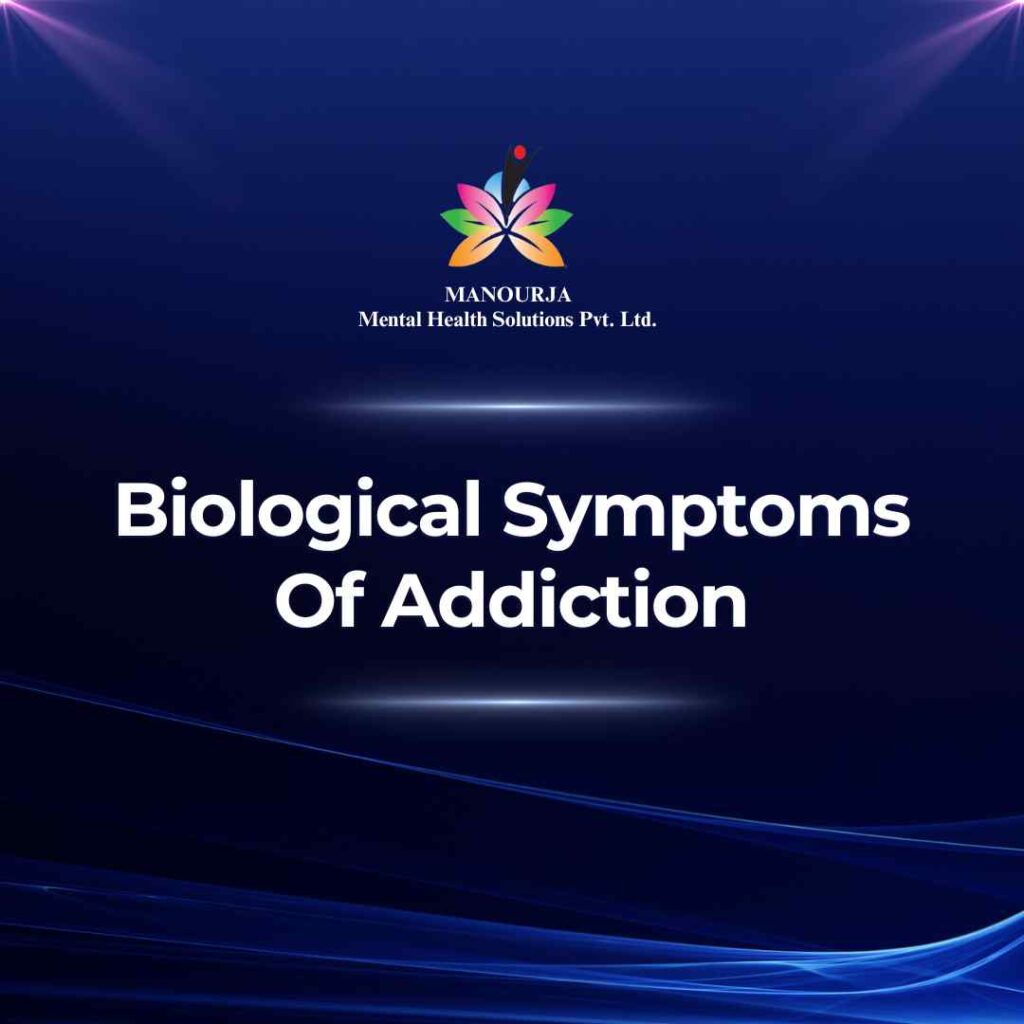Biological Symptoms of Addiction

Biological symptoms of addiction are physical and physiological changes that occur in the body as a result of habitual substance abuse or addictive behaviors. These symptoms primarily involve alterations in brain function and bodily processes.
Here are some key biological symptoms:
Neurochemical changes
Addictive substances often affect the release, reuptake, and sensitivity of neurotransmitters in the brain. For example, drugs like cocaine and amphetamines can increase the levels of dopamine, a neurotransmitter associated with pleasure and reward. Over time, these alterations in neurotransmitter activity can disrupt normal brain function and contribute to addiction.
Neuroadaptation
With repeated exposure to addictive substances, the brain undergoes changes in structure and function to adapt to the presence of the substance. This can lead to tolerance, where larger doses of the substance are needed to achieve the same effects, as well as dependence, where the body becomes reliant on the substance to function normally.
Withdrawal symptoms
When the substance is withheld, individuals may experience a range of physical and psychological symptoms known as withdrawal. These symptoms can include nausea, sweating, tremors, anxiety, depression, and insomnia.
Cravings
Addictive substances can hijack the brain’s reward system, leading to intense cravings for the substance. These cravings can be triggered by environmental cues, stress, or other factors associated with substance use. Cravings often play a significant role in maintaining addictive behavior and can make it challenging for individuals to quit.
Changes in brain structure
Prolonged substance abuse can cause structural changes in the brain, particularly in areas involved in decision-making, impulse control, and reward processing. These changes can persist even after avoidance of substance use and may lead to relapse.
Physical health consequence
Addiction can have serious physical health consequences, including liver damage, cardiovascular disease, respiratory problems, infectious diseases (such as HIV/AIDS and hepatitis), and increased risk of overdose or death.
Genetic factors
There is evidence to suggest that genetic factors play a role in the development of addiction. Certain genetic variations may increase an individual’s susceptibility to addiction or influence their response to treatment.
Overall, biological symptoms of addiction highlight the profound impact of addictive substances on the brain and body. Addressing these biological aspects is essential in comprehensive addiction treatment approaches.
At MANOURJA, we believe in the transformative power of counseling. Our experienced therapists offer a safe and supportive space where you can explore your thoughts, emotions, and challenges. Through personalized counselling sessions, we’ll work together to develop coping strategies, build resilience, and achieve lasting positive change. Discover the path to a healthier, happier you with MANOURJA counselling services.
MANOURJA Rehabilitation Services
At MANOURJA, we’re dedicated to helping you in rebuild your life, after difficult times. Our rehabilitation services focus on understanding what you need to move forward, whether you’re recovering from addiction, trauma, or any psychological – social challenges. We create personalized plans, that are all about helping you, regain your strength and find hope again. With a caring team by your side, you’ll have the support to make real progress and take steps toward a brighter, healthier future
